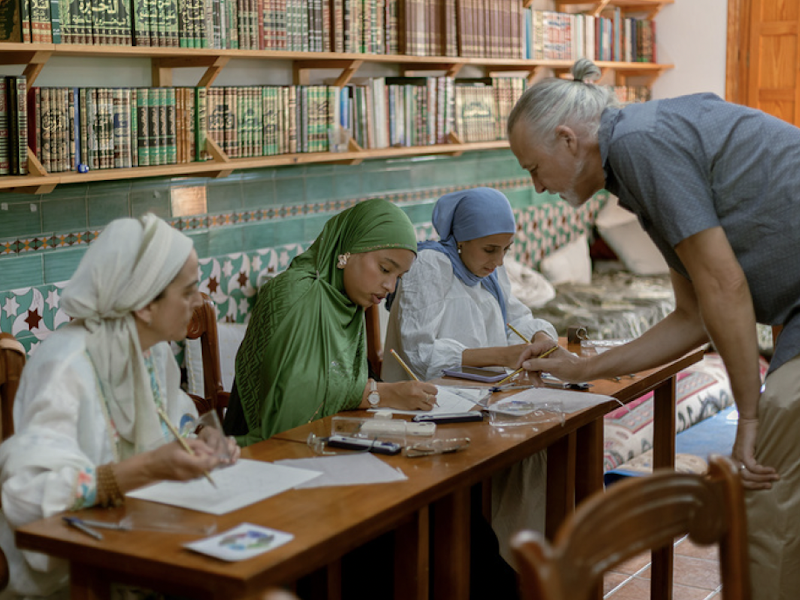La Rihla: Islamic Andalusian Journey
Religious Literacy, Safe Space, and Cultural Belonging
Submitted by MOHAMED ALI EL YEMLAHY CHOUATI with academic mentor ZAKARIA SAJIR
La Última Medina

PROJECT TEAM
MOHAMED ALI EL YEMLAHY CHOUATI is a PhD candidate in Sociology at the University of Salamanca. His research covers migration from Muslim-majority contexts, Muslim minorities, identity negotiation, Islamophobia, secularization, and nonreligion. With a background in economics, law, philosophy, and psychology, he adopts a critical, interdisciplinary approach to social phenomena.
ZAKARIA SAJIR Licenciado en Estudios Europeos e Internacionales por la Escuela de Estudios Internacionales de la Universidad de Trento (2011) y Doctor en Sociología por la Universidad de Leicester (2018). Desde 2023, ejerce como Profesor en el Departamento de Sociología y Comunicación de la Universidad de Salamanca y Profesor Honorífico en el Instituto Universitario de Ciencias de las Religiones (IUCCRR) de la Universidad Complutense de Madrid. Anteriormente, desempeñó funciones como Investigador Postdoctoral Juan de la Cierva en el Instituto de Economía, Geografía y Demografía (IEGD) del Consejo Superior de Investigaciones Científicas (CSIC). Su trayectoria académica se ha centrado en temas de migración, cuestiones étnicas, discriminación, racismo, islamofobia, radicalización, seguridad, gestión de la diversidad religiosa y étnica, y diseño y métodos de encuestas. Además, ha colaborado en evaluaciones de proyectos de investigación para la Agencia Nacional de Evaluación y Prospectiva (ANEP) desde 2020 y ha sido miembro activo de la COST ACTION ETHMIGSURVEYDATA entre 2016 y 2021.
EXECUTIVE SUMMARY:
La Rihla: Islamic Andalusian Journey—Religious Literacy, Safe Space, and Cultural Belonging—is an innovative, student-driven initiative organized by PhD candidate Ali (University of Salamanca) under the mentorship of his supervisor, Dr. Zakaria Sajir. This project addresses the persistent marginalization and misrepresentation of Muslims in Spain by offering a replicable model for minority empowerment through religious literacy, inclusion, and resilience. Conducted as an extra-curricular collaboration with the NGO La Última Medina, La Rihla is a one-week retreat in Granada, rooted in Andalusi heritage and open to Muslims and non-Muslims alike. The program integrates academic lectures, hands-on artistic workshops, physical activity, and cultural excursions, providing participants with accessible, contextualized knowledge about Islam in Spanish. It creates a safe, judgment-free space for women, converts, and seekers to explore faith, identity, and belonging. By centering religious literacy and positive community experience, La Rihla directly counters radicalization, social isolation, and stereotypes, fostering critical knowledge and cultural confidence. The mentor-student collaboration ensured high academic rigor and strategic outreach, while participant feedback and “lessons learned” have made the initiative increasingly accessible and sustainable. With a focus on replicability, the project demonstrates that Islam in Spain is not “foreign” but an integral part of Spanish heritage and society. La Rihla stands as a best-practice model for strengthening minority voices and building inclusive communities.
Report.pdf to found here

